

The North Dayi District is one of the newly created Districts established by LI 2076 of 2012. Its capital is Anfoega.It is composed of twenty three (23) elected Members and ten (11) Government Appointees, a District Chief Executive and one Member of Parliament from the constituency.
The Assembly is by law, the highest Political, Administrative, Rating and Planning Authority in the district with deliberative legislative and executive powers. The Assembly has responsibility for the overall development of the District and it’s made up of six (6) Area Council Unit Committees in almost every community. The laws governing the operations of the Assembly are the 1993 Local Government Act, Act 462, the District Assembly Common Fund Act 455 (1993), National Development Planning Systems Act 480 (1994) and the Civil Service Law PNDC Law 327 (1993).
The General Assembly elects a Presiding Member from among themselves by two-third majority. He presides over the meetings of the assembly for a two-year term. The Assembly has an Executive Committee presided over by the DCE who is usually appointed by the President with prior approval of not less than 2/3 majority of members of the Assembly present and voting at a meeting.
L.I. 1740 spells out in greater details the specific functions of the Assembly in areas of health, construction, rehabilitation, maintenance, agriculture, roads, sanitation etc. For the purpose of the work of the Assembly, and to subject the issues of development to a wider discussion, the Executive Committee has five statutory sub-committees composed of members of the Assembly. These are as follows:
- Finance and Administration Sub-committee
- Development Planning Sub-committee
- Social Services Sub-committee
- Works Sub-committee
- Justice and Security Sub-committee
Aside the five (5) statutory sub-committees, the Assembly also has two (2) co-opted subcommittees to spear heard its development agenda namely;
- Agriculture Sub-committee
- Tourism and Environment Sub-committee
Other Legislative Instruments (LI), Acts and legal frame works governing the operations of the Assembly are as follows,
- Financial Administration Regulation, 2004 Public
- Financial Management Act, 2016 (Act 921)
The National Development Planning Systems (Regulation) L.I 2232 (2016)
Local Government (Depts. of District Assemblies) (Commencement) Instruments, 2009 (L.I.1961)
- Local Governance Act, 936 (2016)
- Civil Service Law PNDC Law 327 (1993)
- Land use and Spatial Planning Act, 2016 (Act 925)
Sub-District
Structures of the Assembly In order to deepen the government’s decentralization policy, the North Dayi District has been demarcated into sub-districts made up of six (6) Area Councils. These are Aveme Area Council, Vakpo Area Council, Awate Area Council, Anfoega Area Council, Wusuta Area Council and Botoku Area Council.
Decentralized Departments
The Local Government (Departments of District Assemblies) (commencement) Instrument, 2009 (“the Instrument”) seeks to operationalize the decentralized departments at the district level as the Departments of the District Assemblies. Under section 161 (1) of the Local Government Act, 1993, Act 462, 22 decentralised departments at the district level are to cease to exist in their present form and then reconstituted through a series of mergers into 16 Departments in the Metropolitan Assemblies, 13 Municipal Assemblies and 11 in the District Assemblies under section 38 of the Act.
Regulation 1 of the Instrument determines the dates for the commencement of the establishment of the Departments of the District Assemblies. It provides that, the Departments listed in the first column of the First Schedule will commence establishment on the coming into force of the Instrument.
Regulation 2 (b) follows the same form in the Second Schedule but deals with existing Departments that are set up by law. Their new Departments will commence when their establishment enactments have been amended. This is because their establishment laws set them up as centralized Departments within the Civil Service. Their establishment laws will therefore have to be amended to conform to their decentralized status.
To capacitate the Assembly to perform its functions, 11 Departments were decentralized to the district level in pursuance of LI 1961. These Departments are to support the work of the Assembly in the discharge of its mandatory functions.
Table 3.0: Department of the District Assembly
SOCIAL ACCOUNTABILITY
Transparency, Accountability and Participation of all stakeholders in decision making processes
The vision of the Assembly is to effectively and efficiently mobilise resources and distribute same to promote and sustain socio-economic development through grassroot participatory decision making. In this context, significant achievement has been chalked by the Assembly in involvement of stakeholders in decision making processes, dissemination of government’s policies and programmes, involvement of Area Councils, building capacities of the substructures among others.
To deepen the practice of democracy, the Assembly intends to continually involve key stakeholders like, Opinion Leaders, Traditional Leaders among others in development and accountability. Mediums of engagements would be, durbars, national celebration days, town hall meetings, area councils meetings, community visitations, use of local fm station (Dayi fm) among others as platforms to engage the public.
The Assembly will also continually liase with CSO’s, NGO’s CBO’s in the discharge of its plans preparation, project implementation and monitoring, strengthening community bonds with the Assembly whiles promoting their needs, budgeting, fee fixing resolutions etc.
Publication of performance of IGF by the various sub-structures for promoting accountability in the District.
SECURITY ISSUES
Development goes in tandem with peaceful environment. It is therefore imperative the Assembly outlined plans to ameliorate any impending issue within the District. Being one of the most peaceful districts in the nation, issues of land litigation has been on the quite within the district since lands are owned mostly by families. There was a chieftaincy issue at Wusuta on clan from which paramount chief be choose from but was resolved by the Ministry of chieftaincy. Due to increase abuse of substance among the youth, one robbery case was witnessed with sporadic gunshots at Puma Filling station at Vakpo. The professionalism of the Police came to bear as some suspects were apprehended.
The issue of nomadic herdsmen (Fulani) has been a major worry in some communities such as Botoku, Tsrukpe and parts of Vakpo within the District. However, District Security Council (DISEC) which is the body mandated for security situations has been up to task. Concerted effort made by DISEC to regulate and streamline their activities is to regularize those nomadic herdsmen stay in the District due to their long stay for peaceful co-existence with bond of good behavior.
The major security service institutions in the district are the Ghana Police Service, Ghana National Fire Service, and Bureau of National Investigation
Police Service
The District has a police command with its Headquarters at Anfoega. It exercises over sight responsibility from Anfoega, Vakpo, Golokuati and Have. The District has two main stations in Vakpo and Anfoega. The facilities at Anfoega station is not the best and therefore need to be given the necessary attention to enhance the operations of the personnel at the station. It is worth noting that, the Anfoega station is located in a private premise.
The Service has staff strength of ten (10) Personnel comprising of two (2) Chief Inspectors, four (4) Corporals and four (4) Constables.
The major problems facing the Security Services in the district are dilapidated office space, inadequate staff, inadequate office facilities and equipment and staff accommodation. Most of the security men live in rented premises creating security problem to the service men. However, there is construction of District Police Headquarters in Anfoega and is about 90% complete which will provide officers with the right environment to work.
The current police to citizen ratio is 1:3992 as against a standard ratio of 1:1000. This exerts pressure on the existing Personnel of the service.
Fire Service The District has a Fire Service in the premises of the Assembly with a fire tender. The total staff strength is twelve (12) that operate in the District.
Bureau of National Investigation The sole responsibility of the unit in the District is intelligence gathering.
Date Created : 11/23/2017 6:09:10 AM


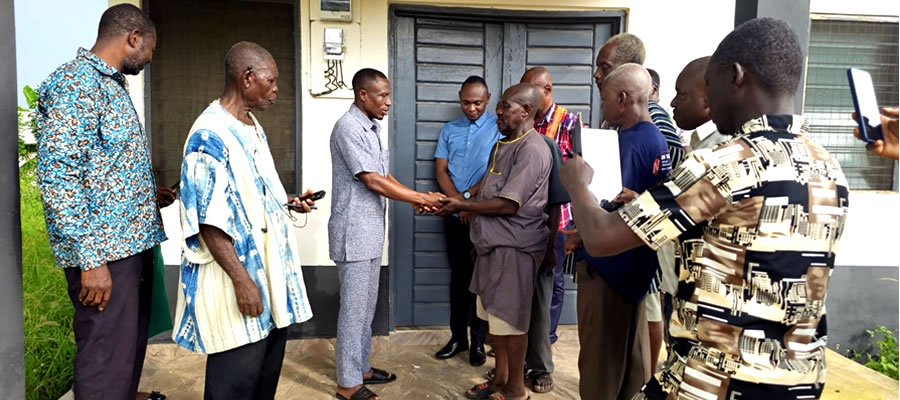
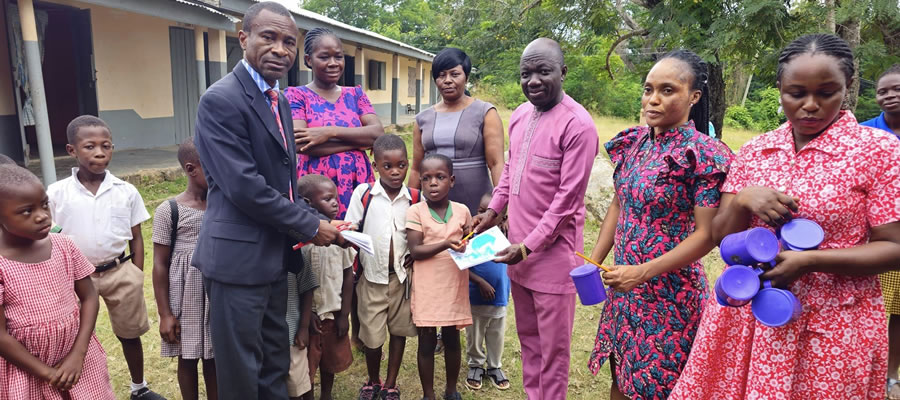


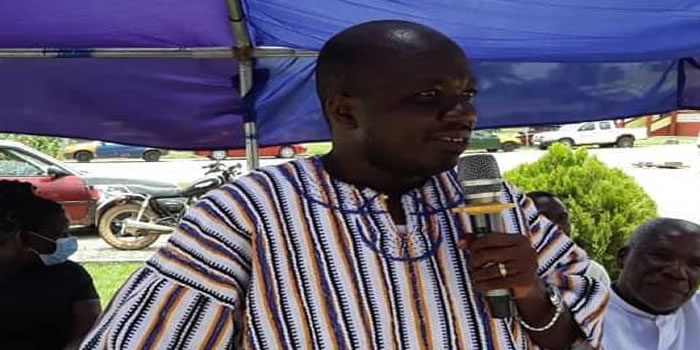
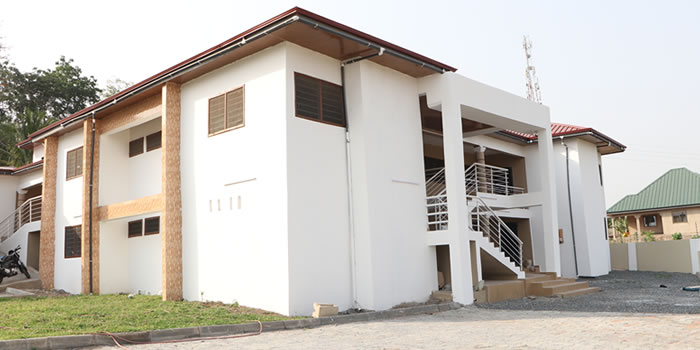
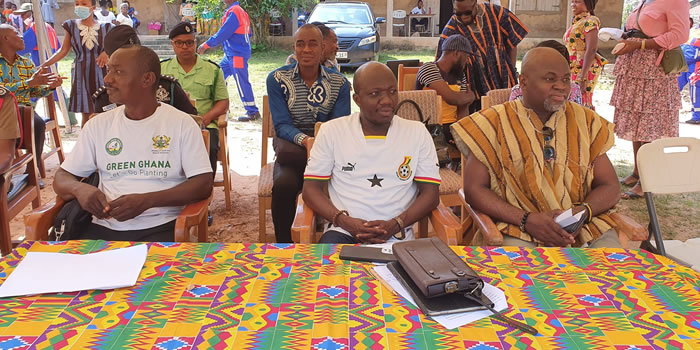
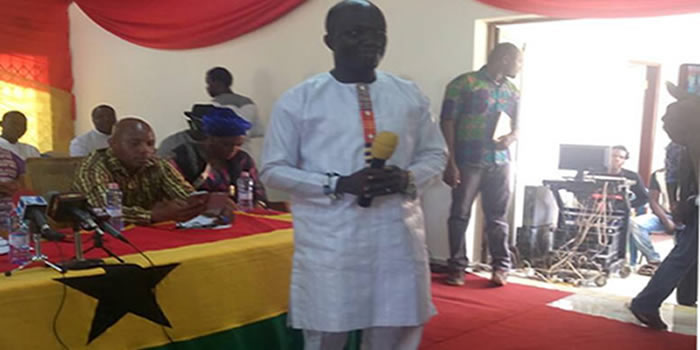


 facebook
facebook
 twitter
twitter
 Youtube
Youtube
 +233 593 831 280
+233 593 831 280 0800 430 430
0800 430 430 GPS: GE-231-4383
GPS: GE-231-4383 info@ghanadistricts.com
info@ghanadistricts.com Box GP1044, Accra, Ghana
Box GP1044, Accra, Ghana